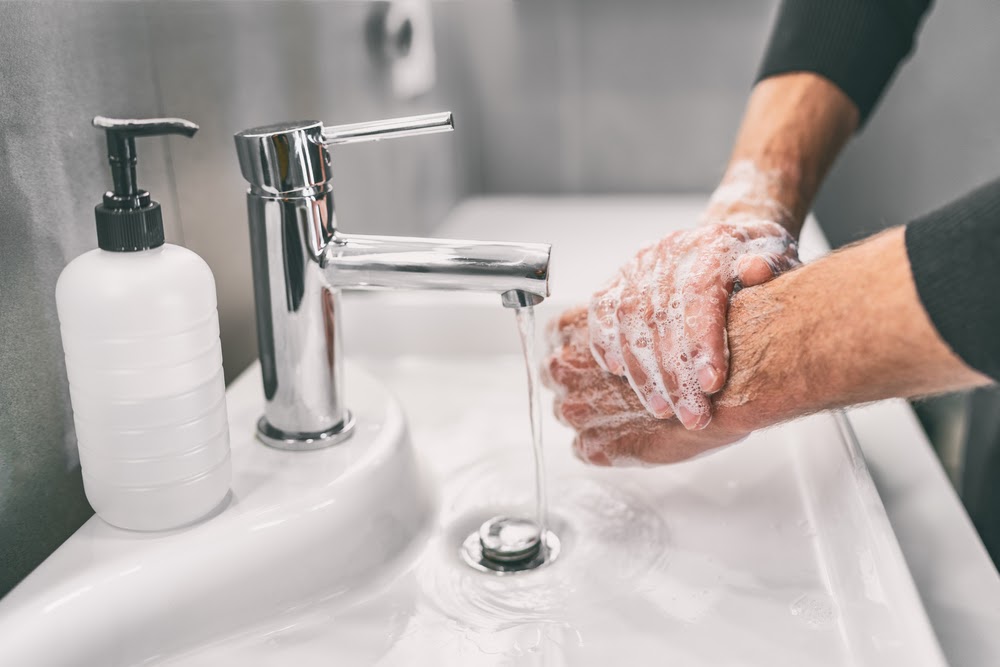Your Ultimate Health Guide: 7 Tips to Boost Your Immune System
Catching every cold or flu that goes around is no fun, but if you have a weak immune system, it’s way more likely to happen to you. If you’re looking to improve your immune system and increase your body’s resiliency, try one or more of these eight strategies to get and stay healthy, from sleeping more to eating well.
Destress.
Stress has been found to be one of the leading causes for when one’s immune system is not functioning properly. When your body is stressed out, the immune system’s ability to fight off antigens is reduced, thus making your body more susceptible to infections, infectious diseases and overall sicknesses. Luckily enough, you can prevent this by keeping a healthy state of mind. Take time out of your day to decompress and relax, especially if you are working from home. The anxieties and stresses of the current coronavirus pandemic have made working from home difficult, and people’s normal time for relaxation throughout the workday has been replaced with home-schooling children, conducting house chores and running errands. A great way to decompress at home is with a relaxing massage in a high-quality massage chair. By massaging and relaxing the muscles, your body’s stress levels will subside.
Sleep enough.
Yes, there is something that’s guaranteed to boost your immune system and, no, it’s not a supplement or a shake. Your body uses sleep to repair itself, making new proteins (aka the building blocks of the cell) while you snooze. Whether you’re fighting off an illness or injury or just trying not to get sick, sleep is your friend. You’re much better off skipping that expensive supplement and getting an extra hour of sleep instead. While everyone’s needs vary individually, most adults need between seven and nine hours of sleep every night to fully function and keep their immune systems in top shape. If you have trouble sleeping, there are several different things you can try, such as taking melatonin, muffling loud sounds with ear plugs or white noise and blocking out light with blackout blinds or curtains.
Exercise regularly.
Exercise builds your body and makes you stronger and less susceptible to illness and injury over the long run. For optimal benefits, you should aim for a mixture of cardiovascular and strength building activities. Generally healthy adults should strive for 150 minutes of moderate intensity exercise spread out throughout the week, which equates to 30 minutes five days a week. There are many workouts that you can do at home or in your neighborhood with minimal equipment, such as running, walking, plyometrics and kickboxing. Experiment with some different types of workouts to see which ones you like best.

Eat a healthy diet.
Your gut and your immune system are very closely linked, and eating a healthy diet is an important component of maintaining a strong immune system. In general, you should eat a diet rich in fruits and vegetables, lean proteins and whole grains. Try to eat foods rich in fats and sugars only in moderation. Indulging occasionally is fine, but these foods shouldn’t make up the majority of your diet. Avoid any foods that you’re sensitive to, as they can result in inflammation and weaken your body (not to mention cause problems like stomach cramps and acid reflux).
Watch your stress levels.
Stress, especially chronic stress, wears down our bodies and makes us more susceptible to illness. If you’ve noticed yourself feeling tired or getting sick a lot for “no reason,” stress could be the culprit. Some of the other tips listed in this article, including regular exercise, are natural stress relievers. Many people also find yoga, meditation and mindfulness helpful in managing stress. You can also try deep breathing exercises, practicing aromatherapy (such as lighting a candle), spending time with your pet, listening to soothing music, and reducing your caffeine intake. Some Human Touch massage chairs also include a Sound Soothe feature, which allows you to get a full-body massage while relaxing to one of eight built-in nature tracks.

Practice good hygiene.
Good hygiene is incredibly important for protecting yourself from germs. You should wash your hands for a minimum of 20 seconds with soap and water. Don’t forget to lather the backs of your hands, between your fingers and under your nails. If hand washing isn’t available, you can use an alcohol-based hand sanitizer that contains at least 60 percent alcohol. There are many key times to wash your hands, including before and after eating or preparing food; before touching your eyes, nose or mouth; after using the bathroom; after blowing your nose, coughing or sneezing; and after touching garbage. See the CDC’s website for full guidelines on how and when to wash your hands.
Don’t forget your mental health.
Lots of advice for boosting your immune system focuses on your physical health, but it’s important not to neglect your mental health as well. How you feel mentally is very closely linked to how you feel physically, and being stressed, depressed or anxious often manifests in headaches, upset stomachs, insomnia and other physical complaints. Exercising will help improve your mental health, as will getting outside in nature, connecting with friends and pursuing new hobbies. If you struggle with conditions such as depression and anxiety, finding a therapist can be a big help, and some people also find medications useful as well.
While many people want to take a vitamin and be done with it, cultivating a healthy immune system is more of a lifestyle—but it’s so worth it. Follow these seven steps to improve your immune system and better your health.



